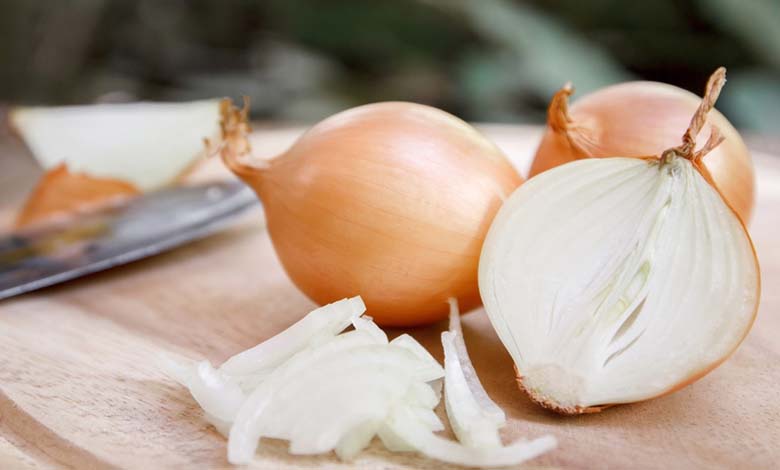Onion: A Natural Food Supporting Diabetic Patients and Protecting Heart Health

Often considered merely a culinary ingredient, the onion is in fact a functional food with well-documented therapeutic properties. Consumed for centuries in various cultures, it contains bioactive compounds that regulate blood sugar, protect cardiovascular health, and strengthen the immune system. Recent research highlights its role in preventing chronic diseases and supporting individuals with type 2 diabetes.
-
Fresh Onion Juice: The “Secret” to Fast Hair Growth
-
Can Raw Green Onion Relieve Teething Pain in Babies?
Bioactive Compounds in Onion
Onions are rich in flavonoids, particularly quercetin, a potent antioxidant that reduces oxidative stress and enhances insulin sensitivity. They also contain organosulfur compounds, responsible for their characteristic flavor, which stimulate insulin secretion and regulate carbohydrate metabolism.
Other essential nutrients include:
- Vitamins: C, B6, folic acid
- Minerals: potassium, magnesium, calcium
- Dietary fiber: promoting gut health and intestinal transit
These combined elements make onions both nutritious and functional.
-
The Heart-Healthy Benefits of Onions: Why Incorporating Onions into Your Diet is Good for Your Heart
-
Drinking Beetroot Juice on an Empty Stomach: Safe or Risky?
Onion and Diabetes
Clinical studies show that regular onion consumption can help lower blood sugar in diabetic patients. Quercetin and sulfur compounds improve insulin sensitivity, reduce inflammation, and prevent complications related to hyperglycemia, such as kidney damage, neuropathies, and eye diseases.
Additionally, soluble fibers in onions slow glucose absorption, helping prevent postprandial blood sugar spikes. Integrating onions into daily meals can therefore be a complementary nutritional strategy to stabilize blood sugar levels.
-
Loss of Smell as an Early Warning Sign of Alzheimer’s Disease
-
Flavonoids – Nature’s Defense Against Aging
Cardiovascular Protection
Onions also have remarkable heart-protective effects. Their flavonoids and sulfur compounds reduce LDL cholesterol and increase HDL cholesterol, helping prevent atherosclerosis. They improve blood flow and reduce clot formation, lowering the risk of heart attack and stroke.
Moreover, onions have a mild blood-pressure-lowering effect due to their sulfur compounds, supporting cardiovascular health. Antioxidants in onions protect the vascular endothelium by reducing oxidative stress and chronic inflammation, key factors in heart disease.
-
Understanding Vitamin B and Its Dietary Sources
-
Lettuce at Suhoor… A Shield against Dehydration during Fasting
Additional Health Benefits
Onions also offer:
- Anti-inflammatory effects: reducing systemic inflammation linked to diabetes and chronic diseases
- Antimicrobial properties: fighting certain bacteria and viruses
- Prebiotic effects: promoting beneficial gut bacteria
- Potential anticancer benefits: some studies suggest a role in preventing gastrointestinal cancers
How to Incorporate Onions in Your Diet
To maximize their benefits:
- Eat raw or lightly cooked to preserve flavonoids
- Add to salads, soups, or sautéed dishes
- Vary onion types: red, yellow, or white, each with different bioactive profiles
- Avoid prolonged high-heat cooking, which can reduce antioxidant properties
Onions are true “food-medicine,” particularly beneficial for diabetic patients and those concerned with heart health. Their diverse bioactive compounds allow them to regulate blood sugar, protect the cardiovascular system, and strengthen immunity. Regular dietary inclusion makes onions a valuable tool for preventive health and nutritional support.












